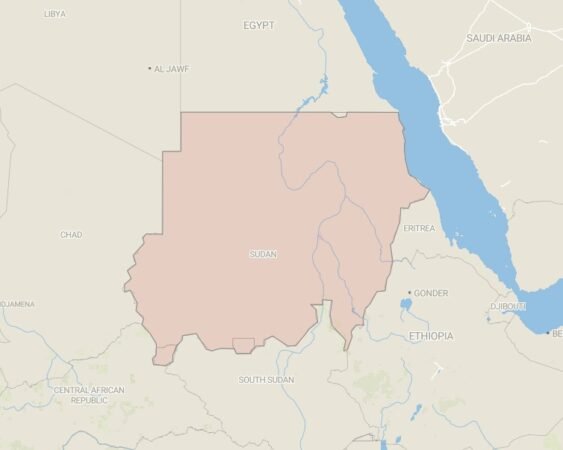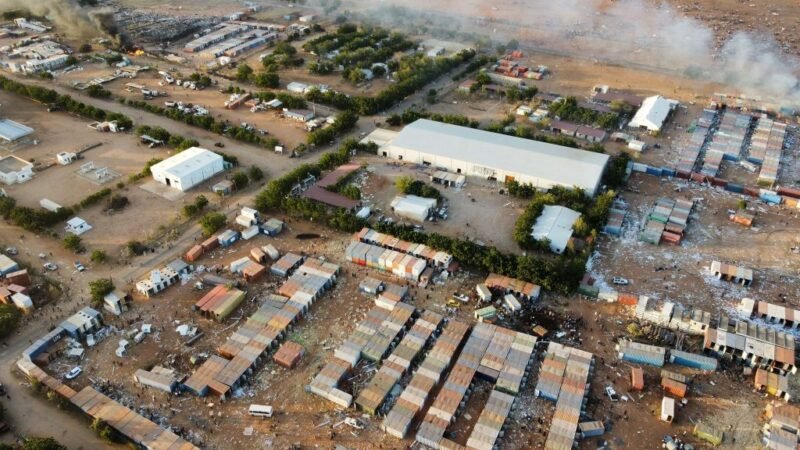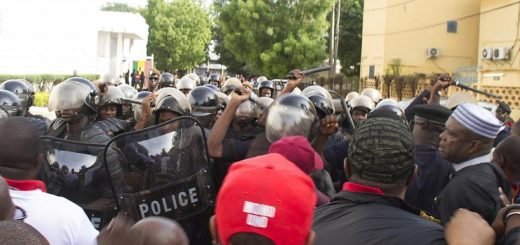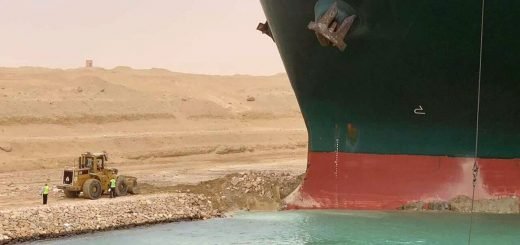Sudan’s Ongoing Crisis: A Look at the Conflict Between the Army and RSF

Recent violence in Sudan has left at least 180 people dead and many more wounded. The fighting is the latest crisis in a nation that has experienced numerous coups and periods of civil strife since becoming independent in 1956.
The conflict centers on infighting between two rival groups: the Sudanese Army and the Rapid Support Forces (RSF), a paramilitary group. Since the 2019 coup that removed long-time dictator Omar al-Bashir, Sudan has been under the control of the army, led by coup leader General Abdel-Fattah Burhan. The RSF, led by General Mohammed Hamdan Dagalo (known as Hemedti), has worked with the army to maintain their hold on power.
Despite promises of a transition to civilian rule and elections by the end of 2023, it seems neither Burhan nor Dagalo has any intention of relinquishing power. Instead, they are locked in a power struggle that turned violent on April 15, 2023.
Over three days, the RSF and Sudanese army have engaged in gunfights in Khartoum and elsewhere in the country. While the recent trigger for the violence was a disagreement over incorporating RSF paramilitaries into the army, tensions have been brewing for some time. The RSF seeks to control more of Sudan’s economic assets, especially its gold mines.
The violence is a threat to Sudan’s stability and any prospects for a transition to democratic rule. Here’s what you need to know:

What preceded the fighting in Sudan?
Negotiations had been underway for several months to return Sudan to the democratic transition that had been halted by the October 2021 coup. In December, the armed forces and the RSF signed a preliminary agreement with pro-democracy and civilian groups under international and regional pressure. However, the agreement only provided broad outlines, leaving many political issues unsettled. During negotiations to reach a final agreement, tensions between Burhan and Dagalo escalated over how the RSF would be integrated into the military and who would have ultimate control over fighters and weapons.
How did the situation escalate?
On Wednesday, the RSF began deploying forces around the town of Merowe north of the capital, which has a large airport, central location, and downstream electric dam on the Nile River. The RSF also sent more forces into the capital and other areas of the country without the army leadership’s consent. On Saturday morning, fighting broke out at a military base south of Khartoum, with each side blaming the other for initiating the violence. Since then, the military and the RSF have fought with heavy weapons in densely populated areas of the capital, and the military has pounded RSF bases with airstrikes. The conflict has spread to other areas in the country, resulting in dozens of deaths and hundreds of injuries.
What’s at stake?
Sudan is a country with a long history of coups and is at the crossroads of the Arab world and Africa. The current conflict threatens to destabilize the country and potentially reignite old conflicts in areas like Darfur. It also jeopardizes Sudan’s progress towards democracy, which was hard-won after years of peaceful protests. The international community has called for an end to the fighting and a return to negotiations towards a peaceful resolution.

Who are the Foreign Actors Involved?
The clashes have spread to other parts of the country, including the coastal city of Port Sudan and the war-torn Darfur region, where UN facilities were attacked and looted, resulting in the death of three World Food Program employees.
Several foreign actors are involved in the conflict, as Sudan is a country rich in natural resources, including gold, and strategically located in the Red Sea region. Russia was a dominant force during the rule of former strongman Omar al-Bashir, who was ousted in 2019, and had reached an initial deal to build a naval base on Sudan’s Red Sea coast. Since then, the United States and European nations have been competing with Russia for influence in Sudan. The Russian mercenary outfit Wagner has even made inroads in the country.
Sudan’s current military leaders, General Abdel Fattah al-Burhan and General Mohamed Hamdan Dagalo (known as Hemeti), have forged close ties with Saudi Arabia and the United Arab Emirates (UAE). Sudanese troops from the military and the RSF have fought alongside the Saudi-led coalition in Yemen’s civil war. Egypt, another regional power, also has deep ties with the Sudanese military, conducting regular war games with them, with Egyptian troops present in a Sudanese military base for exercises when the clashes broke out.
The military controls most of Sudan’s economy, but the RSF runs major gold mining areas, which are a key source of income for the group. With so many foreign actors involved, the situation in Sudan is complex and multifaceted. Diplomatic efforts are underway to find a peaceful resolution, with the UN Security Council scheduled to discuss Sudan on Monday, and the US Secretary of State Antony Blinken discussing developments in Sudan with the foreign ministers of Saudi Arabia and the UAE. As the situation continues to develop, pressure from allies in the region will be essential in avoiding a protracted conflict with devastating consequences, similar to the war in Tigray in Ethiopia.


















